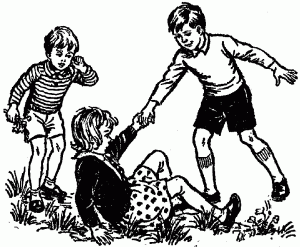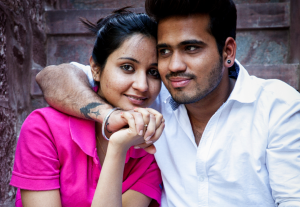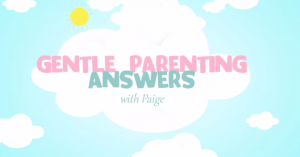
Source: Bubblews
Editor’s Note: This article was published for 2014 but we think all the content is still useful. So here it is again for 2015!
As I think back over 2013, I’m happily overwhelmed by memories of my first year living with my partner, of incredible opportunities to collaborate with new professional colleagues, and of time with family and friends.
Standing at the margins of these memories, though, are ones that make my heart beat a little faster, that make the hair on the back of my neck stand up.
No, these are not necessarily memories of trauma, per se. They are memories of hurt that I have caused, of my attempts to be a good ally that ended up hurting those with whom I attempted to act in solidarity.
My heart races, in part, because I feel embarrassed and ashamed, but more so, my heart races because I know I hurt people for whom I care very much, and I have a responsibility to do better going forward.
With that in mind, I have been reflecting a lot lately on how I can be a better ally.
And as we wade our way into 2014, I suppose now is as good a time as any to consider some ways that I (and any person who wishes to act accountably as an ally) can do better in 2014.
So here’s my list of 30 ways that those of us who strive to act in solidarity and allyship (most notably inclusive of myself) can be better allies.
1. Listen More
It can’t be said enough. The single most important thing we can do to be better allies is to listen across difference.
2. Talk Less
The other side of the coin of listening is that we can always do a better job of stepping back, asserting ourselves less into spaces, and, in doing so, allowing those to whom we ally to speak their truths.
3. Look to Amplify Rather than Overshadow
Though being a better ally can mean that we must talk less, that doesn’t mean that we ought to be in total silence.
We surely need to defer to those with whom we are acting in solidarity, but we also want to make sure that we are not leaving those to whom we want to ally ourselves to be the only ones speaking.
Thus, there are times we should be speaking up, times where we can amplify the voices of others with our collective perspectives. It’s just important to be sure we’re amplifying, not overshadowing.
4. Strive to Use More Inclusive Language
There are always ways that we can use more inclusive language as allies. I, personally, think I do a pretty good job of being inclusive, but I still find myself using ableist language like “insane” or “lame” pretty often. Thus, in working to be a better ally in 2014, I can work to be even more inclusive in my language.
5. Be Careful with Pronoun Use
Part of using inclusive language that is, unfortunately, still pretty new to a lot of people working for social justice is careful use of pronouns.
Not all people would label themselves with the gendered pronouns that you might assume for them, and some people prefer non-gendered pronouns altogether. A simple way that we can be inclusive is to offer what pronouns we prefer and ask others what they would prefer.
And try not to misgender people by assuming the pronouns that they would prefer unless you’ve heard them assert their preference.
6. Engage More People Who Share Your Identity
As allies, our primary work must be with people who share our privileged identity. Thus, the more we can work to bring people who share our identity to understand their identity and privilege and to act for justice, the better.
7. Don’t Think You’re ‘Holier Than’ Those Who Share Your Identity
I recently had a fantastic conversation with my partner, her mom, and a family friend about a really frustrating thing that we often see among White liberals: the “holier than thou” attitude.
As our primary responsibility as allies is to challenge and bring into the fold those who share our identity, calling people out with no desire to call them in or to engage them or others in dialogue or action toward justice is just lazy, faux activism. Stop it.
8. Cite Your Sources
Whether discussing the origin of a hashtag or referring to a complex theory or idea, if you’re a person of privilege, you have a responsibility to cite your sources.
In the age of the Internet, it can be pretty easy to pass off anything and everything as our own (whether intentionally or out of laziness), but we need to be clear where our ideas are coming from.
If we’re talking about oppression and we’re not oppressed, the ideas aren’t ours. Cite them.
9. Self-Reflect More
Simple. Pretty much everyone of any identity could use more time for both critical and loving self reflection in a society that encourages us constantly to be engrossed in exterior input.
But for people of privilege who want to be allies, it is particularly important that we build into our lives ways to consider our own identity and its impacts on others and how we can more fully live in our values.
10. Interrogate Why You’re Striving to Be an Ally
As part of this self-reflection, it is important to ask why you’re striving to be in solidarity with oppressed people across difference.
Are you doing it because you want to “save” others or “use your privilege” to help someone? Or are you striving for solidarity because, in the words of Lilla Watson, “your liberation is bound up with” those with whom you ally yourself?
11. Work to Check Your Subconscious or Semi-Conscious Behaviors
This one’s really hard because, well, we don’t always know we’re doing some problematic things. In my own case, I know that as a straight man that was socialized in normative masculinity, I can find myself staring at women’s bodies in public without even realizing that I’m doing it.
Thus, I have to work to make myself aware (often by doing #1) of the semi-conscious or unconscious behaviors that negatively impact others, and I need to work to change those behaviors.
One powerful thing about being human is that we have control over our behaviors, even most of the subconscious ones!
12. Make ‘Being an Ally’ an Action
So long as we think of being an ally as a noun, as a status, we are in trouble. We need to think of allyship and solidarity as constantly changing and shifting depending on the expressed needs of those with whom we want to be in solidarity.
13. Recognize That Yes, You’re Going to Do it Wrong
If you’re a person of privilege who is working for justice, particularly in ways that subvert your own privilege, you’re going to screw up. You’re going to do it often. And you’re going to screw up badly. Be prepared for that, and be prepared to…
14. Apologize without Caveats
Because those of us who strive to be allies are going to inevitably fail sometimes, we have to be prepared to apologize accountably and without caveats and to work to do better in the future. And no, “I’m sorry if you were offended” is not an apology without caveats.
15. Give More
Whether it’s time, money, or energy, we as allies need to commit ourselves in 2014 to giving more.
Marginalized and oppressed people don’t get to choose to take breaks from resisting oppression. Thus, we need to realize that stepping back completely or taking breaks from being an ally isn’t really an option.
Sure, the nature of our work can change from time to time and must always be in response to those with whom we’re allied, but we need to be regularly looking for the ways that we can accountably step up as allies (while keeping in mind numbers 1-3 and 15-18).
16. Fill in Supportive Roles
One of the ways that we can step up more regularly is to fill in supportive roles.
Is an activist group organizing a big action? Perhaps you can volunteer to phone bank or enter data. Are community organizers asking for help with child care while they meet? Offer to help!
Sometimes supportive roles are the most important ones for allies to fill, and while you definitely aren’t going to get credit for them, you shouldn’t expect credit for your work as an ally.
17. Step Out of the Spotlight
One issue that I worked on a lot in 2013 and must continue to challenge myself with in 2014 is to step out of the spotlight. Allies should rarely be the center of attention in work for justice.
18. Show Up
More and more, I am hearing activists from marginalized communities talking about “allies” who talk a big Facebook or Twitter game, but who don’t show up when it comes to fundraising or organizing or getting people out to actions.
Being an ally must be about more than challenging your racist uncle when he posts something nasty on social media.
19. Refer to Those with Whom You Want to Be in Solidarity
The next time someone comes to you for work or commentary or ideas that relate to social justice, ask yourself to whom you can refer them.
Sure, sometimes it makes sense for us to be the ones talking, but as often as possible, we should be looking to refer to people those who are experiencing marginalization and oppression first hand.
20. Consider Your Impacts Rather Than Your Intentions
It can’t be said enough: When it comes to working for justice, our intentions just plain don’t matter that much.
21. Don’t Expect Kudos or Thanks
This summer, I was so proud of myself for being a “good ally” and donating some food and coffee (during a time when money was tight) to the pro-choice protesters at the state capitol in Texas. After never hearing a word of thanks from the recipients, I was a little miffed. So I checked myself: The focus is not on individual acts or thanks, but on the mission of protecting choice in Texas.
In short, it’s great when thanks are expressed, but it should never be expected. We shouldn’t get pats on the back for the relatively simple work of being an ally.
22. Diversify Your Media Consumption
Not sure what that means? Check out what Mychal Denzel Smith has to say on the subject.
23. Seek and Build Diverse Community
Solidarity and allyship can’t exist in isolation. It must be done in community. Now, this is not to say that you should expect everyone across difference to be your friend. But having some level of accountability and community is vital.
Thus, seeking spaces to participate in diverse community is something we as allies need to focus on. But don’t do so flippantly. Community takes serious work and trust.
24. Consider Who’s Listening When You Speak Up
One of the tough things about being an ally is deciding which battles (say, with family or friends) make the most sense to take up.
In my own case, I have an uncle who is blatantly classist, racist, and sexist. His mind ain’t changing. So when he corners me in the kitchen at Christmas, I don’t take the bait.
But sometimes he happens to spout his BS around my nieces and nephews, and then I know I have a responsibility to say something.
25. Remember That the Moment You Decide You’re Not Part of the Problem, You Are
Too often, “allies” decide that we have it all figured out, that we are not contributing to White supremacy or classism or another form of oppression.
The moment that we decide this, we are, in fact, the very essence of the problem, as our unexamined privilege has the potential to do great damage to individuals or movements.
26. Think Creatively About How to Bring in More People from Your Identity
As noted in #6, allies have a responsibility to engage people from our own identity. And there are countless ways to do this.
Want to engage friends in conversations about identity? Plan a themed, discussion-based potluck! Host a film screening and discussion! Start a book group!
27. Lean on Other Allies
It’s important that allies look out for one another for two main reasons. First, anyone who is working against oppression needs support. Second, we cannot rely on those with whom we are allying ourselves to be our emotional support.
28. Offer More Emotional Support
Whether to other allies or to those with whom we are acting in solidarity, we have a responsibility to be more of an emotional support than an emotional drain.
Far too often, “allies” take up a disproportionate amount of emotional energy in the work. Instead, we need to focus on ways that we can be better listeners and supports to those with whom we’re working.
29. Expand the Scope of Your Allyship
As the saying goes, “When one of us is chained, none of us are free.” Perhaps you’ve been putting a lot of energy into being a better anti-racist ally. That is fantastic! Keep doing that! But also consider ways that you can be a better trans ally or able-bodied ally.
Focus a whole heap on womanist or feminist issues? Consider expanding your scope of feminism to, say, immigration. If our identities are indeed intersectional, we have a responsibility to stand as allies in big and small ways against all forms of oppression.
30. Practice Self-Care
Finally, if you’re going to be a good ally to others, you have to make sure you take care of yourself. Self-care is the cornerstone of any anti-oppression work, and one thing we can all do more of in 2014 is taking care of ourselves.
[do_widget id=”text-101″]
Jamie Utt is a Contributing Writer at Everyday Feminism. He is the Founder and Director of Education at CivilSchools, a comprehensive bullying prevention program, a diversity and inclusion consultant, and sexual violence prevention educator based in Minneapolis, MN. He lives with his loving partner and his funtastic dog. He blogs weekly at Change from Within. Learn more about his work at his website here and follow him on Twitter @utt_jamie. Read his articles here and book him for speaking engagements here.
Search our 3000+ articles!
Read our articles about:
Our online racial justice training
Used by hundreds of universities, non-profits, and businesses.
Click to learn more




















